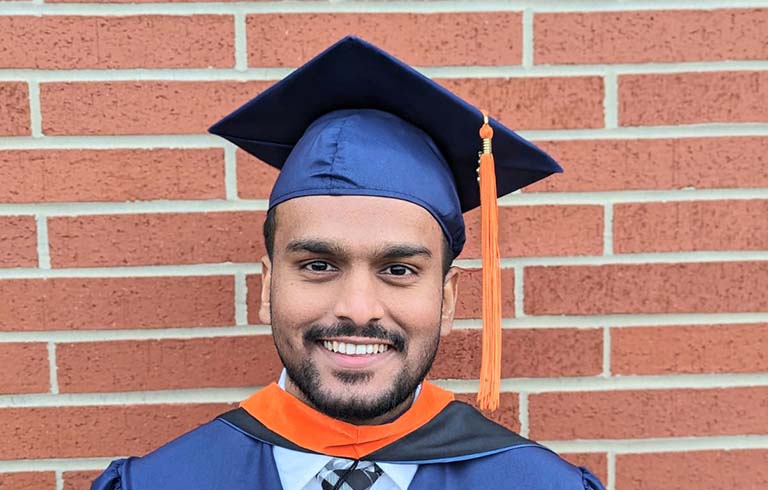
The skills and knowledge to succeed
Abdul Musaddiq Syed’s Trine University degree and the skills it provided propelled him to an extremely successful career.
September 20, 2023
By John Clampitt
Communication '26
Khoa Weston, an electrical engineering major at Trine University, completed an REU (Research Experience for Undergraduates) at the University of Michigan over the summer. The experience focused on learning how to make, study and improve advanced semiconductors.
Weston found out about the opportunity from Sameer Sharma, Ph.D., chair of the electrical and computer engineering department at Trine, who was one of his professors at the time.
“He shared a flier of the job's details to our lab and encouraged me to apply,” Weston said. “I decided to apply because I had a friend who had a positive experience doing an REU. I also wanted to expose myself to the research side of the career field, rather than just industry. When I got the email accepting me into the program, I was overjoyed.”
His day-to-day requirements varied depending on which mentor he worked with during the day.
“When I was with my mentor, Zhongyong Wang, I would spend my days taking thermal measurements of nanoparticle monolayers, which is a single layer of particles that are held together by ligands. Ligands are molecules that bond to a central metal atom. I used a custom microfabricated suspended calorimeter to take the measurements,” he said. “On days that I was with Audrey-Rose Gutierrez, someone I shadowed often, I would go into the Lurie Nanofabrication Facility and follow the lithography process to fabricate graphene field-effect transistor devices. A graphene field-effect transistor is essentially a microscopic switch that only lets current flow through the graphene if enough voltage is applied.”
Trine prepared him for the REU by giving him a fundamental knowledge and understanding of transistors, as well as resistor circuits. The chemistry and physics experience from Trine also prevented him from falling behind on radiative heat transfer topics, which were heavily utilized during the REU. The REU was centered around gaining a better understanding of the thermal and thermoelectric properties of nanoparticle monolayers.
“This experience has changed my career goals from wanting to go into industry after graduation to pursuing a PhD in photovoltaic technology, a technology used in solar power,” Weston said. “I know this field is very young, and I believe that someday it will have a significant impact on how the world generates its power. This summer proved to me that to reach my dream of making a significant impact in technology and the world, I need to be doing research.”